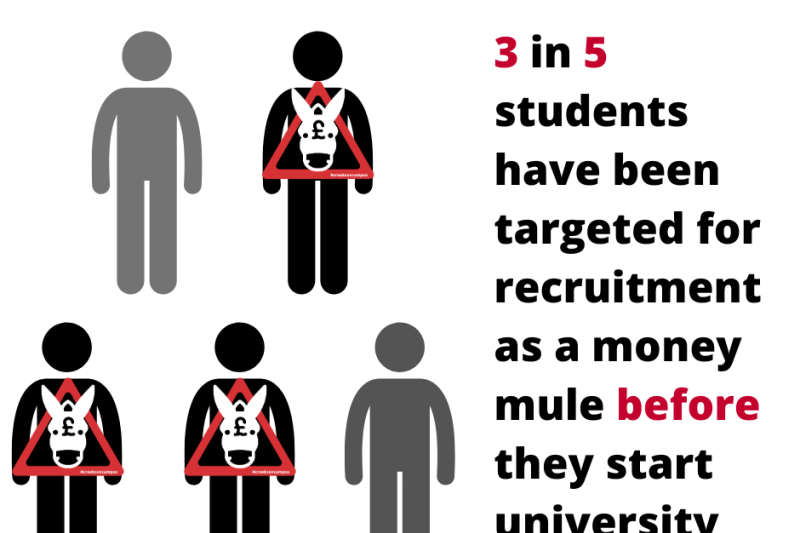
Young people are increasingly the major victims of fraud. Victims don’t only lose their money - they can lose their family savings, their businesses, their trust in other people, their mental health and plenty more.
One of the most important enablers of fraud are money mules – this is where you let someone else use your bank account to send money into. By using money mules, criminals try to ensure that the consequences hit the mule instead of them.
Around six in ten money mules are under the age of 30 and most are recruited between the ages of 17 and 24. Many criminals target their recruitment of money mules at universities or colleges – either online, in person or via friends and family.
Money mules usually get recruited because they get a cut of the stolen money. This means they are involved in money laundering. This is a serious criminal offence, with a maximum sentence of 14 years in prison.
How can I protect myself?
- Be suspicious of job adverts that offer the chance to earn quick and easy money. Stick to reputable job sites and remember that if something looks too good to be true, then it probably is.
- Don’t sign up for any opportunity without undertaking some proper research. E.g., Google any prospective employer, do they have an online presence? Are the contact details legitimate? Is it based overseas?
- Don’t engage with any online posts offering large sums of money.
- Don’t accept message requests from people you don’t know, and if you receive a message with a link to click from a friend, speak to them in person before you respond.
- Don’t share bank and personal details with anyone that you don’t know or trust – even among friends or family. If someone asks to 'borrow' your bank account, say no.
- Always remember that if you aren’t sure about the source of the money, it could have come from criminal activity, and you could unwittingly be laundering money and end up with a criminal conviction.
What should I do?
If you or someone you know has been approached, break off all contact, don’t receive or move any money, and ask for advice from someone you trust. Criminals operate in silence – by talking about it, you are protecting others.
- Report it by calling local Police on 101 or 999 in an emergency.
- Contact the HMRC Fraud Hotline quoting ref: IFMM23. You do not have to give your name or contact details unless you want to.
- Contact the independent charity CrimeStoppers anonymously online or by calling 0800 555 111. Please quote ref: IFMM23.
- If you see it online, click the button to report it to the social media companies to get it taken down.
Check our IT security - stay safe online web pages to help learn how to protect your devices and prevent attacks. If you'd like to talk to someone about any online safety issues you can call the BU IT Service Desk on 01202 965515, option 1.
You can also read about online, email and phone scams which target international students.



